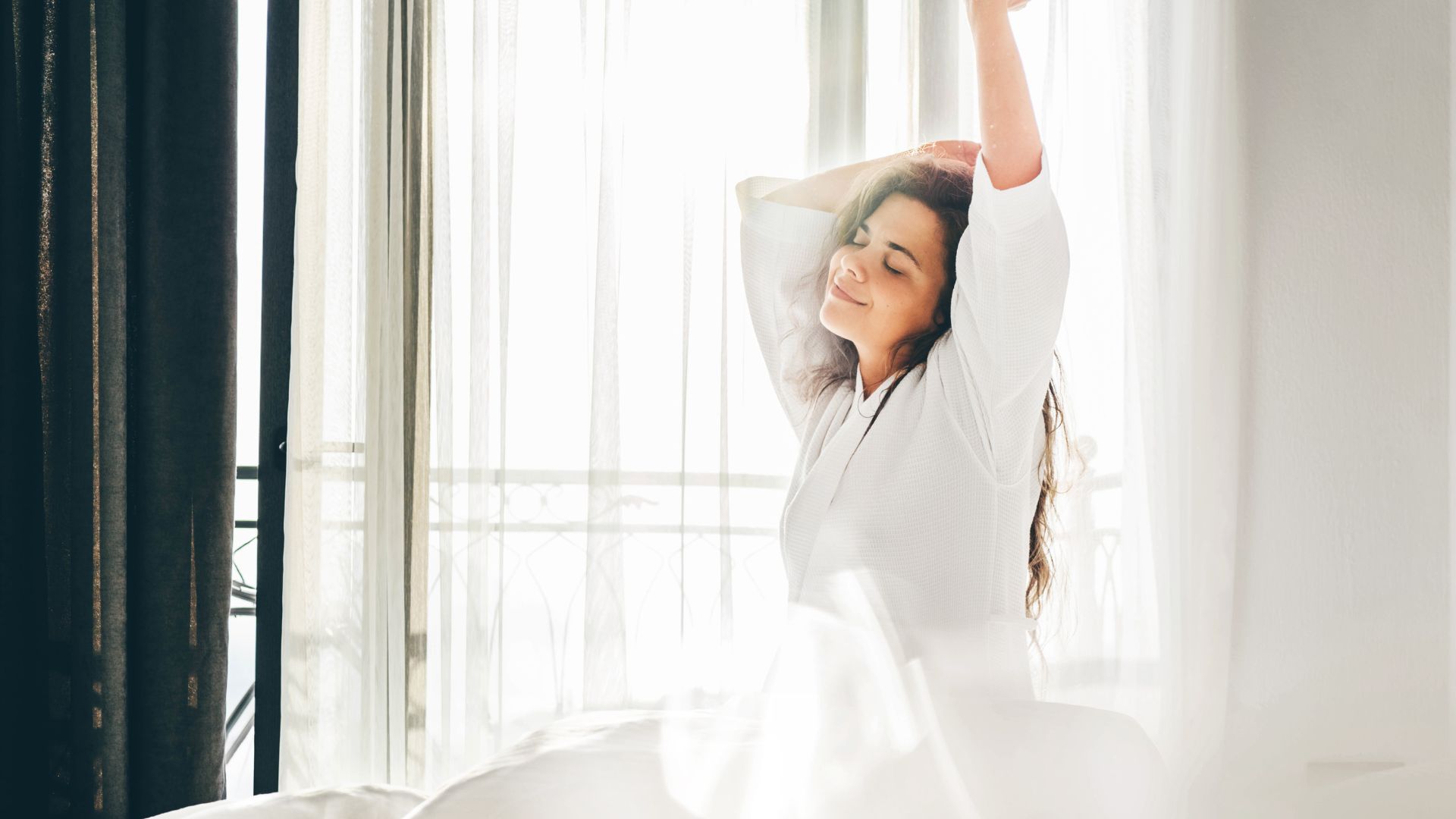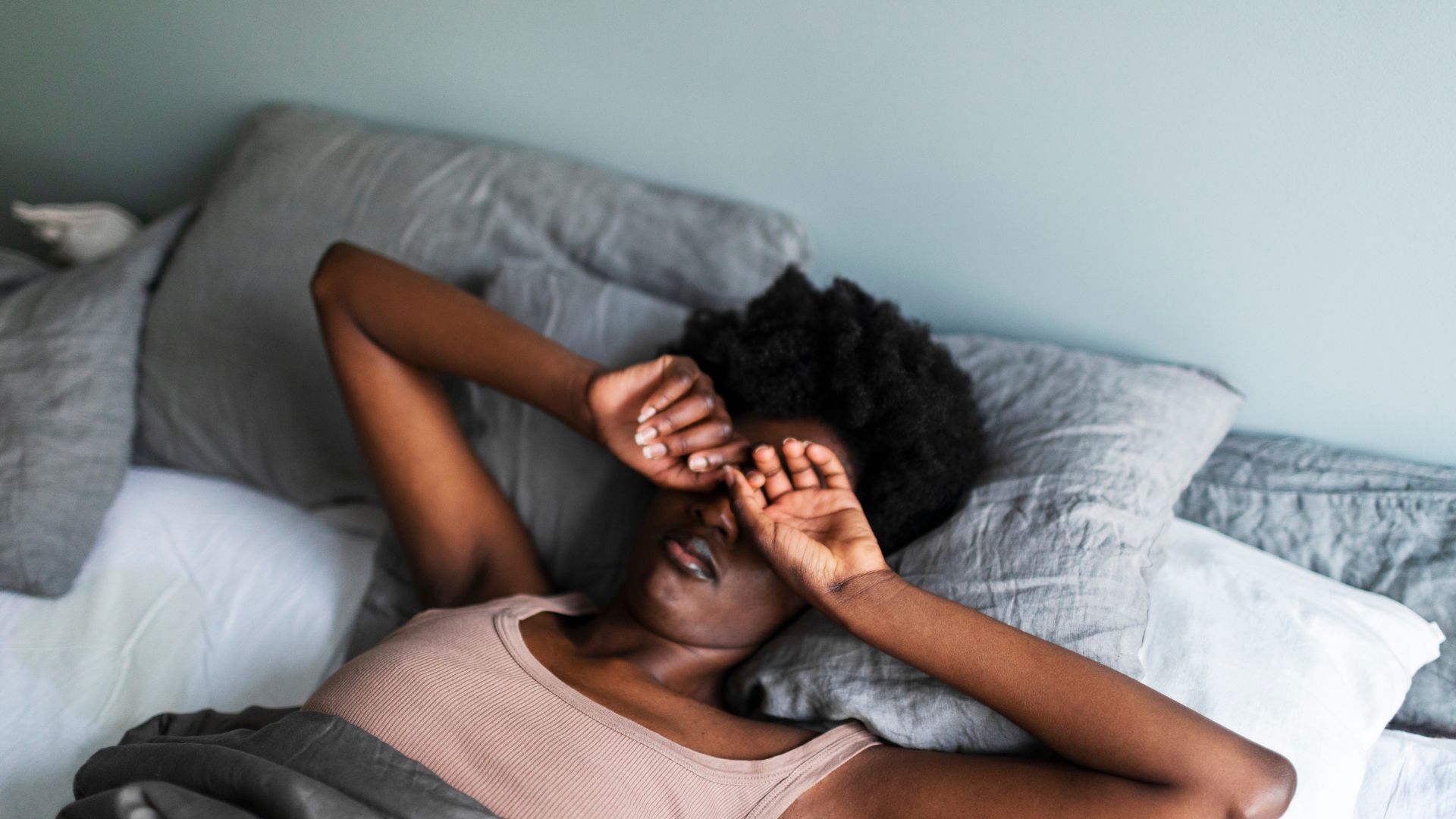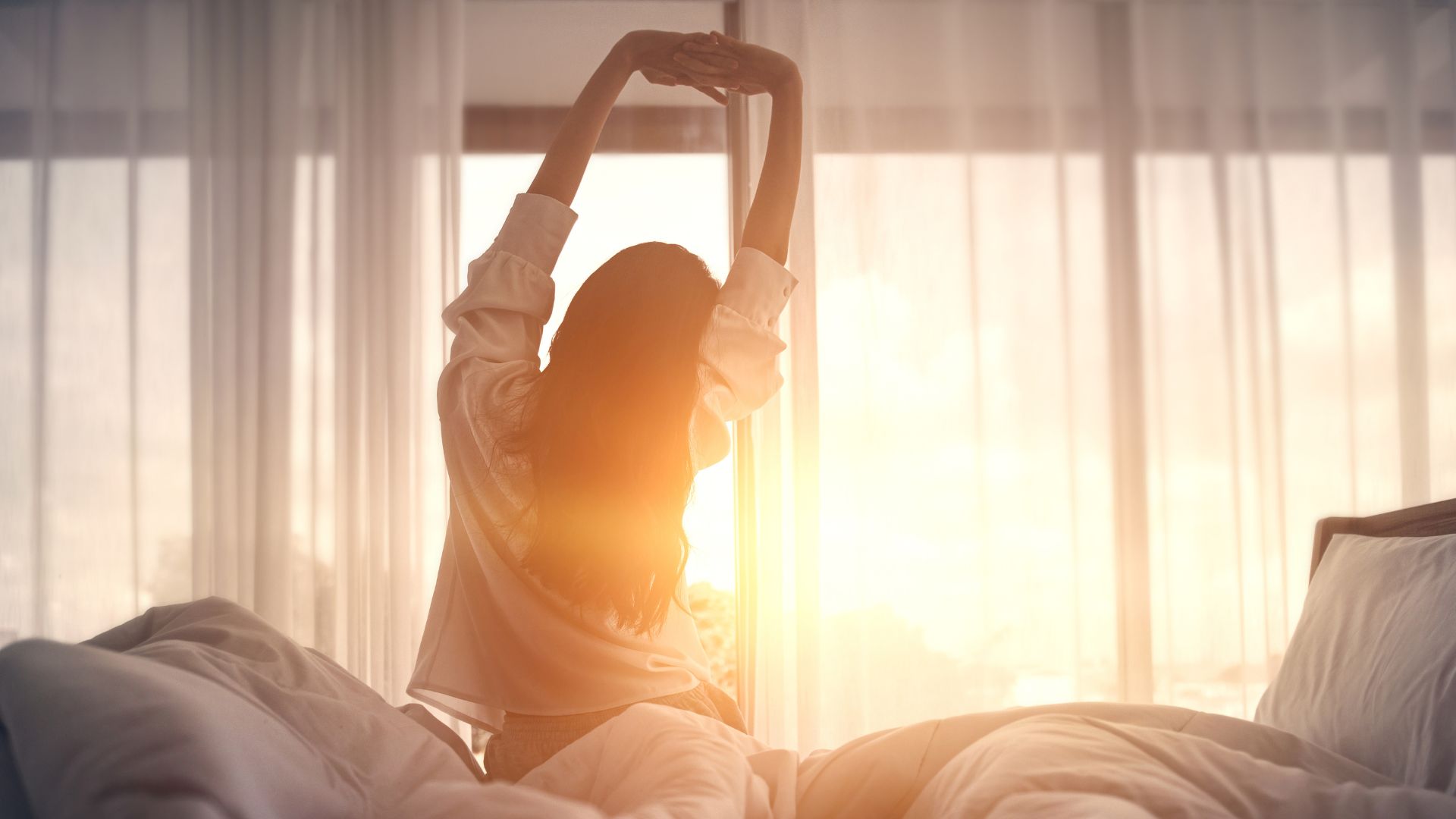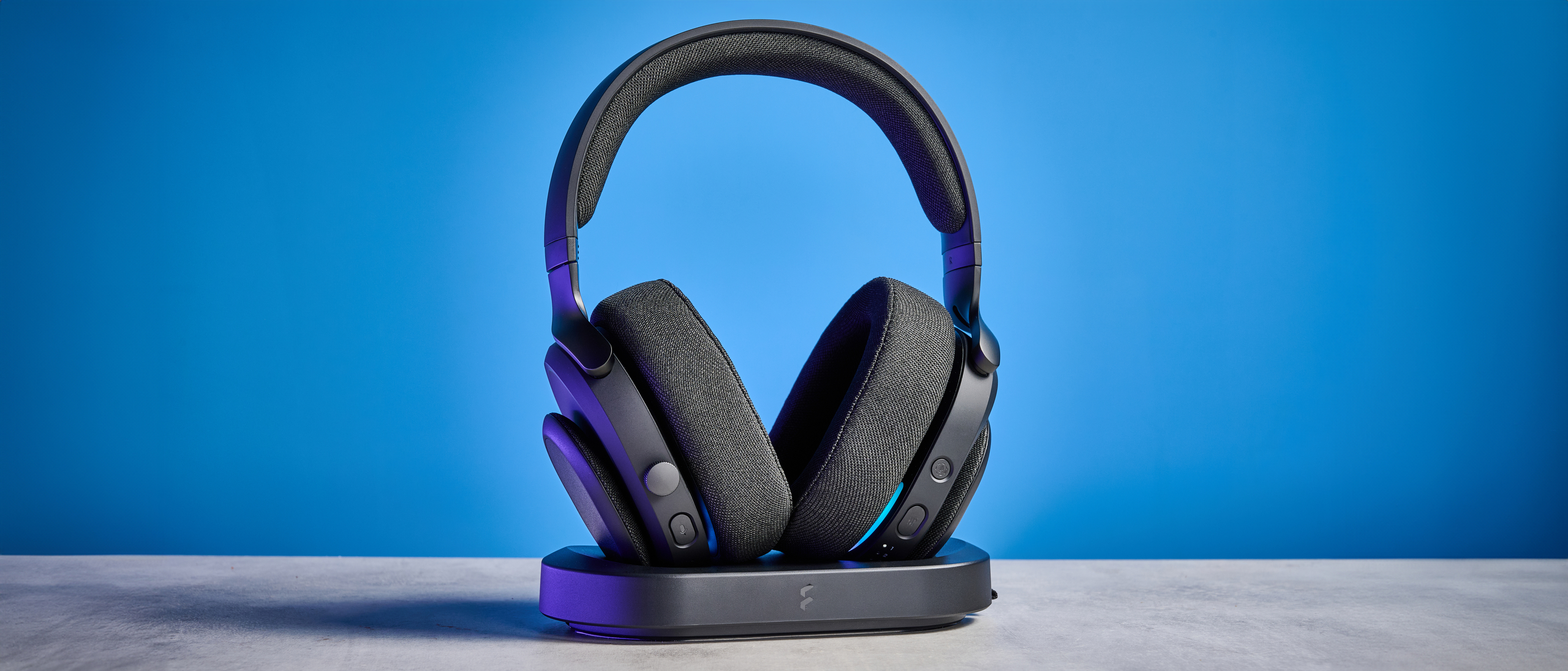Still tired after 9 hours of sleep? Expert explains why
A sleep expert explains why less can be more

Here at Tom’s Guide our expert editors are committed to bringing you the best news, reviews and guides to help you stay informed and ahead of the curve!
You are now subscribed
Your newsletter sign-up was successful
Want to add more newsletters?

Daily (Mon-Sun)
Tom's Guide Daily
Sign up to get the latest updates on all of your favorite content! From cutting-edge tech news and the hottest streaming buzz to unbeatable deals on the best products and in-depth reviews, we’ve got you covered.

Weekly on Thursday
Tom's AI Guide
Be AI savvy with your weekly newsletter summing up all the biggest AI news you need to know. Plus, analysis from our AI editor and tips on how to use the latest AI tools!

Weekly on Friday
Tom's iGuide
Unlock the vast world of Apple news straight to your inbox. With coverage on everything from exciting product launches to essential software updates, this is your go-to source for the latest updates on all the best Apple content.

Weekly on Monday
Tom's Streaming Guide
Our weekly newsletter is expertly crafted to immerse you in the world of streaming. Stay updated on the latest releases and our top recommendations across your favorite streaming platforms.
Join the club
Get full access to premium articles, exclusive features and a growing list of member rewards.
The recommended amount of sleep for healthy adults is 7-9 hours, according to the National Institutes of Health. So why then, is it possible to feel better, more alert and refreshed after 7.5 hours sleep than getting a lengthier sleep of 9 hours?
Surely, more is more when it comes to sleep? Well, not always. In fact, there are a number of reasons that you might feel worse after 9 hours compared to 7.5. Here, a sleep expert shares these, as well as revealing which is the most common cause of waking up feeling groggy.
And, although we know one of the key ways to ensure you're waking up feeling great is to have one of the best mattresses for your sleep needs, we'll also be sharing a few more tips to help you ensure you wake up feeling refreshed every day of the week.
How much sleep do we need?
"Most adults need 7–9 hours a night. That number is largely set by biology – you can’t train your body to genuinely need less without it taking a toll on mood, focus, and health," says UKCP psychotherapist and sleep specialist, and author of How To Be Awake So You Can Sleep Through The Night, Heather Darwall-Smith.
Sleep runs in cycles, she explains, with each lasting for about 90 minutes, although they can extend to 100 minutes.
During each sleep cycle we move "through light sleep, deep (slow-wave) sleep, and REM (dreaming) sleep. Deep sleep dominates the first half of the night, REM the second. Most people go through 4–6 cycles a night. You can’t change the structure of sleep much, but you can improve its quality and timing," says Darwall-Smith.
Given all of this, what's happening on those occasions we feel better after a shorter sleep duration like 7.5 hours compared to a longer sleep like 9 hours?
Get instant access to breaking news, the hottest reviews, great deals and helpful tips.
Why do we feel more awake after 7.5 hours vs 9 hours sleep?
There are a variety of reasons you might feel alert after 7.5 hours sleep and groggy after 9 hours, here Darwall-Smith talks us through them.
1. Sleep inertia
"If you wake during deep sleep, you’re likely to feel groggy, heavy-headed, and slow – this is called sleep inertia," says Darwall-Smith.
Other symptoms of sleep inertia include disorientation and decreased cognitive ability.
"At 7.5 hours, you might be waking at the end of a cycle, in lighter sleep, which makes getting up feel easier. At 9 hours, you might land in the middle of deep sleep, triggering inertia," she explains.
Although we'll always experience sleep inertia to some extent upon waking, doing so during deep sleep means you'll experience it in a more pronounced way.
2. Circadian timing
If you find that waking after 7.5 hours of sleep feels good, Darwall-Smith explains why this may be connected to your natural body clock.
"Your internal body clock influences alertness. Waking in sync with your circadian rhythm (when your core body temperature is starting to rise) feels more natural," she says.
Our circadian rhythm (also known as our internal body clock) regulates a whole host of our functions and processes, such as hormone release (like melatonin for sleep and cortisol for alertness), body temperature and our sleep-wake cycles.
However, "if 9 hours takes you past that point, you might wake at a 'low' in your rhythm and feel sluggish," Darwall-Smith says.
3. Sleep fragmentation
Sleeping for 9 hours might seem like a great way to catch up on some rest, but if your body doesn't require that much sleep, it can affect your sleep cycles and therefore, how you feel when you wake up.
"If you stay in bed longer than your body needs, your last cycle(s) of sleep may be lighter and more broken," Darwall-Smith explains, adding that, "this can make you feel less refreshed, even if you technically slept longer."
Is one reason more common than the others?

"Sleep inertia is probably the most common culprit," Darwall-Smith says of why we might feel better after 7.5 hours sleep and sluggish after 9, providing two great visual analogies for the differences between waking up during deeper vs. lighter sleep.
"Waking from deep sleep is like trying to start a car in freezing weather – you need time to warm up. Waking from light sleep is more like rolling downhill – much easier to get going," she explains.
So which is better – 7.5 or 9 hours?
I asked Darwall-Smith if all of this means that 7.5 hours sleep is better than 9 hours.
"Not neccessarily," she says. "It’s not about 'shorter vs longer' – it’s about getting the right amount for your body and waking at the right point in a cycle. For some people, 9 hours genuinely works better; for others, 7.5 leaves them sharper. What matters is how you feel during the day."
It's also worth keeping track of the recommended amount of sleep for your age, since the recommended 7-9 hours applies to healthy adults under 60, while children, teenagers and adults over 60 have, in general, different requirements.
How can you make sure you wake up feeling refreshed?

Track your patterns
Sleep tracking apps can help you get a better sense of how you're sleeping through the night, giving you insights into how long you spend in each sleep stage and helping you to determine a sleep routine that gives you the amount of rest you need to feel your best in the morning.
"Use a sleep diary or wearable for 1–2 weeks to see when you naturally wake feeling good. Look for patterns in bedtime, wake time, and total hours," advises Darwall-Smith.
Speaking of the morning, Sleep Cycle , one of the best sleep tracking apps, even features a smart alarm clock that will do its best to wake you during lighter sleep within a 30 minute window, so you're not falling victim to the dreaded sleep inertia.
Set a consistent wake time
Consistency helps your circadian rhythm to function optimally, and one way to avoid issues, like sleep inertia from waking in the middle of a deep sleep stage, is to apply regularity to your wake up time.
"Waking up at the same time every day keeps your circadian rhythm steady, making it more likely you’ll wake from lighter sleep," explains Darwall-Smith.
Let light in quickly in the morning
Light plays a significant role in our sleep-wake cycles, with darkness promoting melatonin production, while exposure to bright light in the morning supresses it and increases cortisol levels.
"Morning light signals your brain to stop melatonin production and raise alertness," agrees Darwall-Smith. To help you feel at your best and brightest in the morning, she suggests you, "open curtains, go outside, or use a light therapy lamp within 30 minutes of waking."
One recent study also showed that getting morning sunlight can lead to better sleep efficiency and fewer nighttime awakenings.
Jenny Haward is a U.K. based freelance journalist and editor with more than 15 years of experience in digital and print media. Her work has appeared in PEOPLE, Newsweek, Huffpost, Stylist, ELLE, The Sydney Morning Herald and more. Jenny specializes in health, wellness and lifestyle, taking a particular interest in sleep.
You must confirm your public display name before commenting
Please logout and then login again, you will then be prompted to enter your display name.
 Club Benefits
Club Benefits










